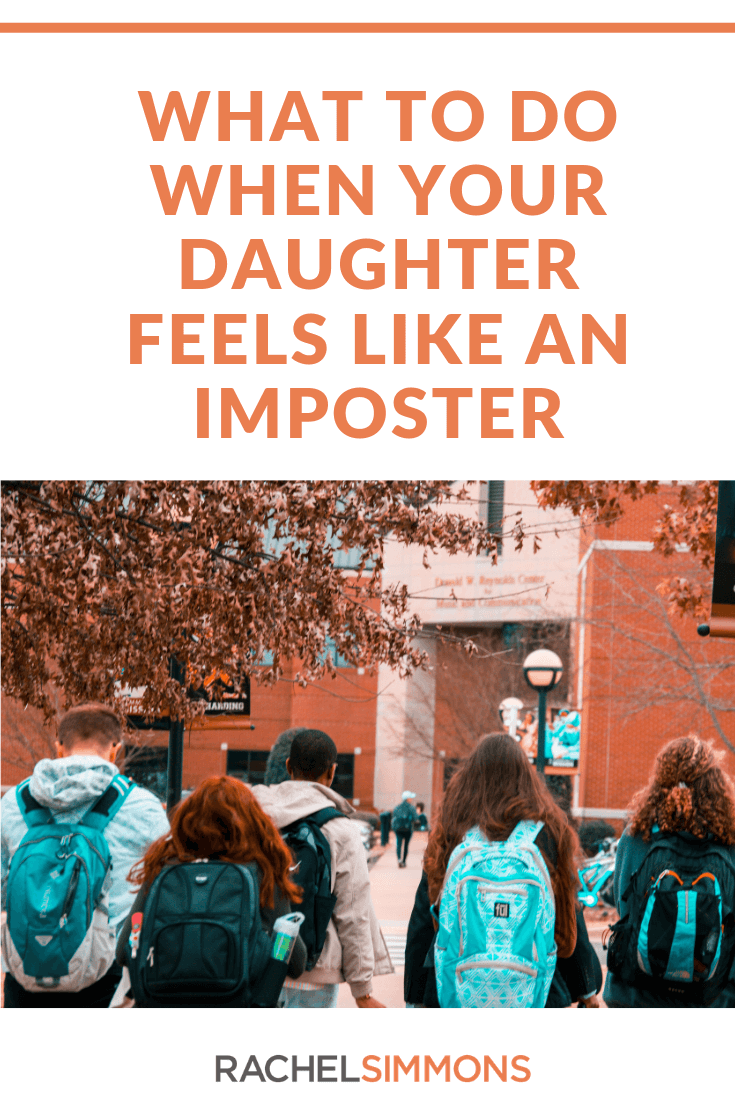When Your Daughter Feels Like An Imposter
Do you ever secretly feel like an imposter? Like deep down, regardless of how others see you, you just don’t have what it takes to succeed?
I felt this way when my last book came out. In my first speeches to parents and girls, my heart raced. Who was I to say any of this? What if these people think I'm wrong and walk out? Maybe they only like me because I’m funny. And on and on.
Can you believe I just told you that? Me neither. But here’s the thing: I know I’m not alone in this. Just listen to Maya Angelou, the poet, author, essayist and activist, who notably said:
“I have written eleven books, but each time I think, ‘Uh oh, they’re going to find out now. I’ve run a game on everybody, and they’re going to find me out.'"
She’s one of many giants of our time who have gone on the record about “imposter phenomenon:” the (false) belief that we’re secretly frauds, and that it’s only a matter of time before we’re discovered and fired, kicked out, expelled, whatever.
Imposter phenomenon tends to affect people who are breaking barriers – whether by taking a big risk or by being a minority in their field (which is why women, people of color and first generation college students can be especially vulnerable). Feeling like a fraud can also stem from a deeply felt sense that we are not enough as we are. And it’s not just a feeling: imposter phenomenon can make us terrified of failure, so our confidence can plummet, and we may avoid pursuing challenges out of fear of “blowing our cover.”
In my latest book, I was stunned to discover that imposter phenomenon is firmly in place by adolescence. So how do we help girls fight back against the idea that they don’t belong?
How To Help Your Daughter Talk Back To Her Imposter Phenomenon
First, we help them realize that imposter phenomenon is part of them, but not them-them. We teach girls not to over-identify with the feeling, but simply recognize it as a part of themselves.
For example, I always ask my students to name their imposter phenomenon voice and talk back to it. One named her voice “Lester.” Whenever she heard a voice in her head saying, You’re not smart enough to be in this class, she muttered, “Hey. Lester. Pipe down.”
Here’s something you can say to your daughter (or to yourself) when you see her struggling with the sense that she’s just not enough – not pretty enough, not smart enough, not athletic enough, not tough enough, whatever:
“That voice inside of you that tells you you don’t belong? That’s A voice inside you. It is not THE voice of you. It’s a small, scared part of you. Everybody has that voice. We don’t have to make it who we are.”

